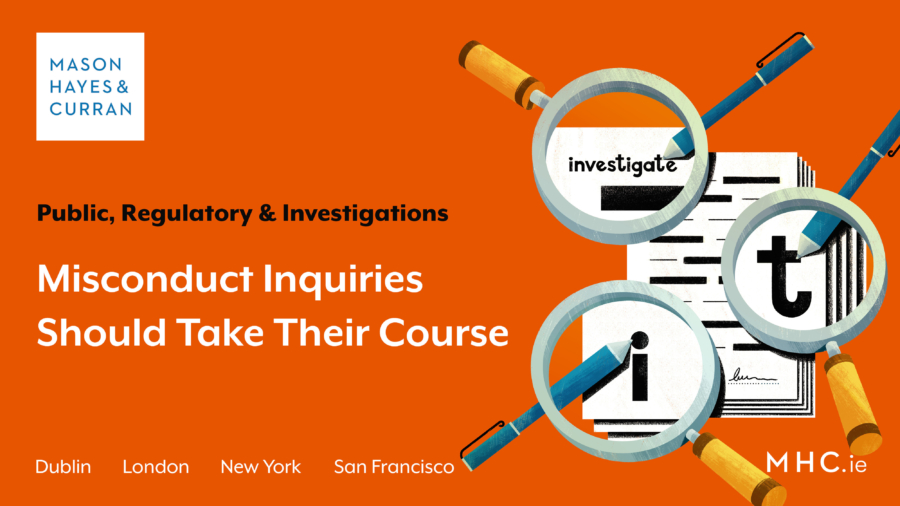Misconduct Inquiries Should Take Their Course

A recent Court of Appeal decision emphasises the public interest in ensuring that professional misconduct allegations are heard, and letting tribunals rule on preliminary or technical objections that might prevent this. Niall Michel, Partner, reviews the implications of this decision.
Professionals accused of misconduct sometimes claim in judicial reviews that technical or procedural issues should stop proposed inquiries into their conduct.
The Court of Appeal has held that a solicitor who brought judicial review proceedings on this basis ought first to have raised those issues before the tribunal concerned, so that it might have heard both parties and any relevant evidence, and ruled on them. The Court also signalled that procedural points need to be evaluated against the public interest in allegations of misconduct actually being inquired into, and not be left untested owing to procedural points being upheld.
In O’Callaghan v Solicitors Disciplinary Tribunal & Anor., the Court of Appeal rejected a challenge by a solicitor based on two technical, procedural points. He did not claim that the tribunal lacked jurisdiction in principle to inquire into his alleged misconduct, but rather that two procedural points should prevent the inquiry going ahead.
For disciplinary bodies generally, the following aspects of the judgment are noteworthy:
- The Court twice referred to the policy of the statutory disciplinary machinery being to enable inquiries to be held into allegations of misconduct. In addition, the Court stated there was a public interest in such inquiries actually being held.
- Therefore, a tribunal or court might be slow to dismiss a misconduct case purely on foot of a procedural application, without ever having considered its substantive merits, as this would not be consistent with the role the legislature has conferred on the tribunal under the legislation.
- Unless a litigant claims a tribunal fundamentally lacks the authority to entertain a misconduct allegation against him or her, procedural points should be rehearsed, heard and determined before the tribunal in the first instance, with both parties contributing, rather than immediately being made the subject of judicial review.
- Even where a tribunal adopts a procedure that is not, or not expressly, provided for in its rules or in statute, it has an inherent power to adapt or supplement its prescribed procedures to ensure fairness of procedure.
Conclusion
Professionals who are subject to disciplinary inquiries and disciplinary bodies might take note that it is the policy of the legislature that allegations of misconduct against professionals get inquired into. In addition, there is a public interest in such inquiries actually taking place. Thus, while they must always be fair, disciplinary inquiries should not lightly be prevented by technical or procedural objections that don’t go to the fundamental authority in principle of the disciplinary body concerned to conduct the inquiry. Such objections should be fully and fairly argued between the parties before the body in the first instance, with submissions and any relevant evidence being presented, and then determined by the body according to its prescribed rules and procedures, adapted or modified if necessary to ensure fairness. Thereafter, judicial review or any applicable statutory appeal might be available in appropriate circumstances.
For more information on the implications of this decision, contact a member of our Public, Regulatory & Investigations team.
The content of this article is provided for information purposes only and does not constitute legal or other advice.
Share this:



